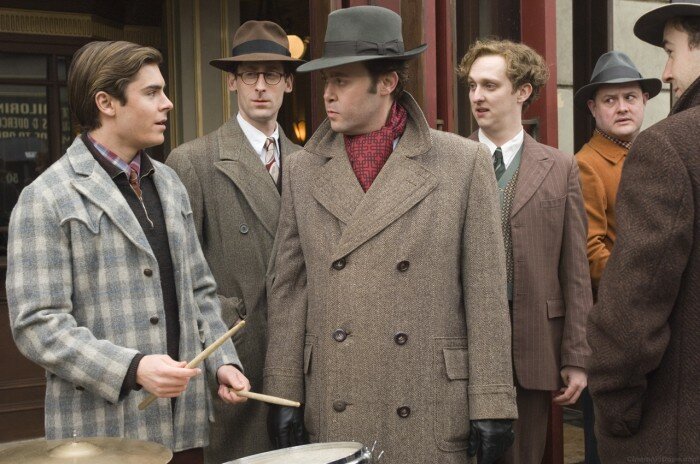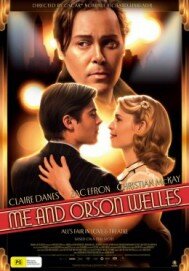If you’re a teenage superstar attached to a mammoth Hollywood franchise, there comes a time in your career when you must prove your worth as an actor and star in a low-key adult drama. Harry Potter’s boy wizard Daniel Radcliffe did it with the Aussie drama December Boys, Twilight’s vampiric heartthrob Rob Pattinson did it with the urban slow-burner Remember Me and now High School Musical’s immaculately chiseled Zac Efron has given it a crack with the delightful period drama Me and Orson Welles.
Although Efron proves he’s a capable performer as the ‘Me’ part of the title, he is pushed well out of the limelight by Christian McKay, the British newcomer who portrays 20th century screen and stage legend Orson Welles.
McKay doesn’t just portray Welles, he becomes him. His physical likeness to the great man is uncanny, but more importantly, he nails every single aspect of Welles’ notoriously eccentric personality. The booming spit-filled projections. The unreserved, self-declared genius. The rare moments of compassion and camaraderie. And, of course, his spellbinding presence on stage, screen and radio. It’s all there, all brilliantly depicted.
Events take place in 1937 New York where young acting hopeful Richard Samuels (Efron) chances upon a role in Welles’ modernised Broadway production of Shakespeare’s Julius Caesar. Filled with feisty optimism, Richard quickly learns that the production only has room for one ego; Orson’s. While vying to stay in the director’s good books, Richard and the rest of the cast begin to lose faith in the production after a string of setbacks leaves little time to prepare for opening night. In-between rehearsals, Richard spends his spare time backstage with the seductive Miss Jones (Claire Danes), a starry-eyed production assistant who embodies both the best and worst of showbiz.
Undercooked as their eventual fling is, it’s an amiable aside to the main event – Danes has wonderfully matured as an actress since her own brush with contemporary Shakespeare in Romeo + Juliet – but the ample screen time spent with Richard tends to detract from our time with Orson, easily the film’s main draw. That being said, Robert Kaplow’s novel (to which the film is based) was never supposed to be a biopic; it is first and foremost a love letter to the creative industry, celebrating the people of art, power of art and precarious nature of making art.
In that case, director Richard Linklater (School of Rock, A Scanner Darkly) comes up trumps. Under his playful direction, a disarmingly youthful sense of optimism and enthusiasm spills off the screen, scene by scene. A tight production budget has not crippled the film’s attention to period detail, while a strong supporting cast playing other prominent 20th century performers – notably Ben Chaplin as George Coulouris (Watch on the Rhine, Papillon) and James Tupper as Joseph Cotten (Shadow of A Doubt, The Third Man) – adds that extra touch of Hollywood nostalgia without going overboard.
But I cannot say it enough: McKay is magnificent. Not for a moment did I doubt that this was the man who went on to make Citizen Kane. In future roles, here’s hoping McKay can distance himself from Welles’ image, but not his talent.
 Follow the author Anders Wotzke on Twitter.
Follow the author Anders Wotzke on Twitter.
















